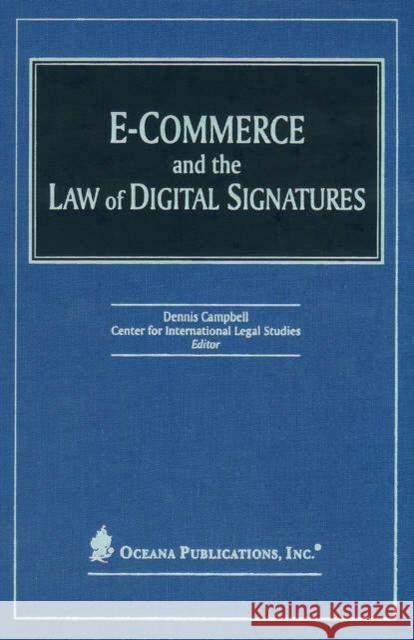E-Commerce and the Law of Digital Signatures » książka
topmenu
E-Commerce and the Law of Digital Signatures
ISBN-13: 9780379215151 / Angielski / Twarda / 2005 / 916 str.
In the past six years, more than 55 countries have begun adopting UNCITRAL's (United National Commission on International Trade Law) Model Laws of 1999 and 2001 regarding the use and validity of e-signatures. Dozens of pieces of legislation and legislative proposals now exist around the world on the subject of e-signatures. While the model laws may look the same on paper, in practice they can vary widely. Finally, you can be certain that your clients are in compliance when using digital signatures.
The Center for International Legal Studies, in cooperation with UNCITRAL, has gathered experts in over 25 jurisdictions to analyze the impact of these standards in their respective domestic e-commerce regimes. These experts show how the Model Laws are actually implemented today in each of these countries. Now you can have on-the-ground feedback about how UNCITRAL's Uniform Rules on Electronic Signatures, the Model Law on Electronic Commerce 1996, and the Model Law on Electronic Signatures 2001 are being implemented. A must have reference for: - Any lawyer working on a business transaction or contract using the Internet to exchange forms - Government Lawyers - Intellectual Property Lawyers Topics covered include: - Application and enforceability of electronic transactions - Defining key terms, including 'writing, ' 'signature, ' and 'original' documents - Legal recognition of data messages - Formation of contracts - Attribution of data messages - Retention of data messages - Trustworthiness of e-signature - Electronic Commerce Analyzes the global impact of: - UNCITRAL's Uniform Rules on Electronic Signatures - Model Law on Electronic Commerce 1996 - Model Law on Electronic Signatures 2001










